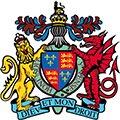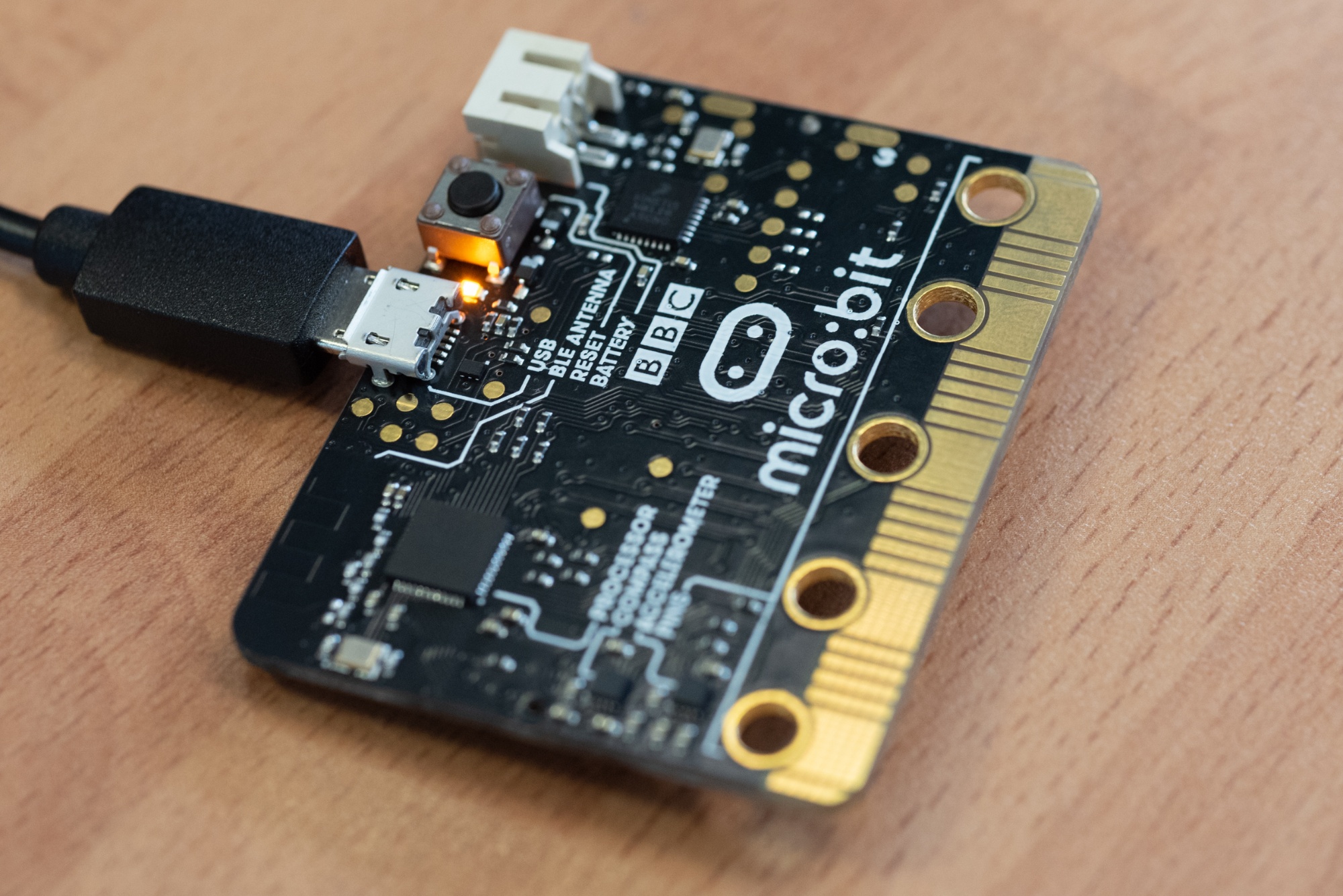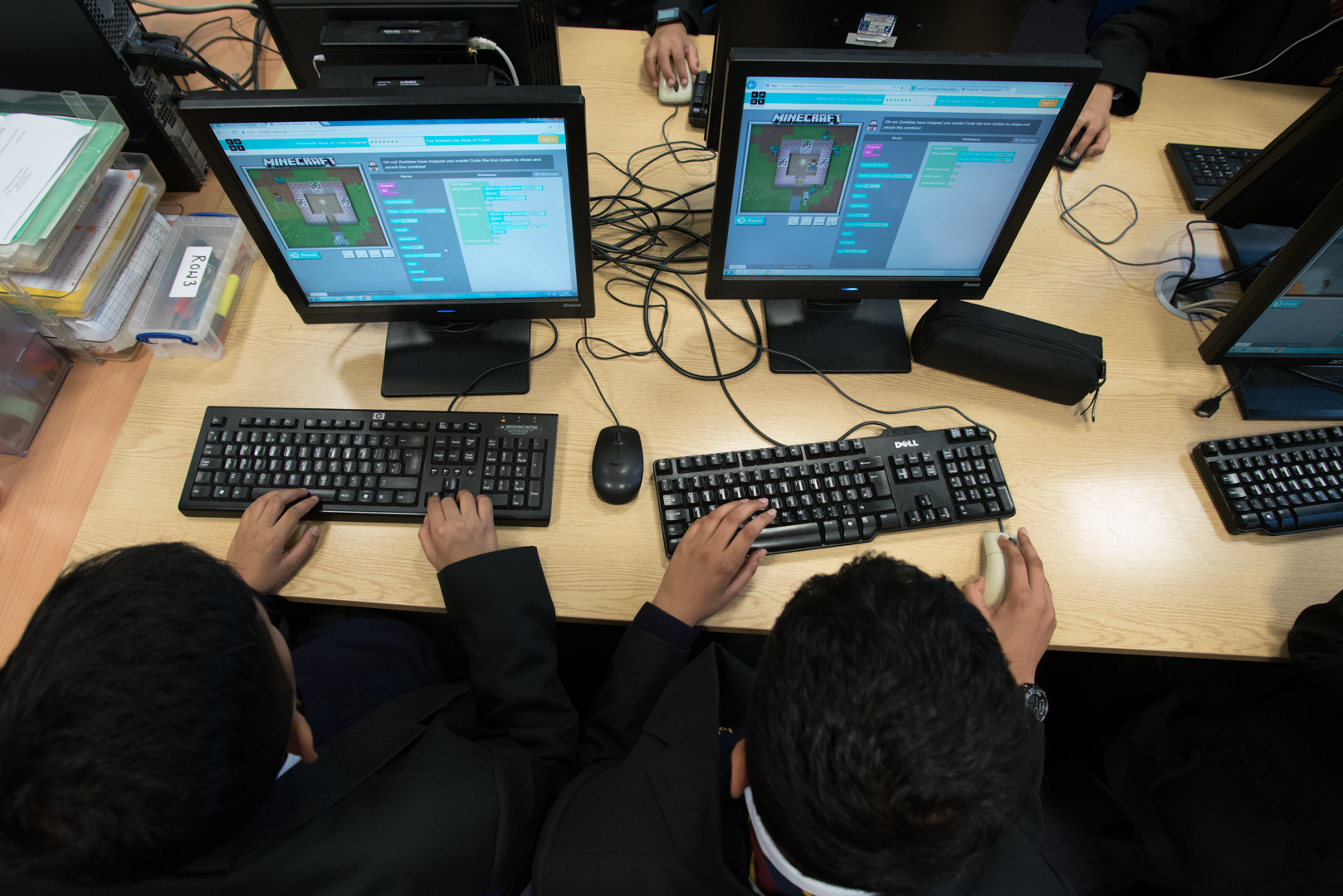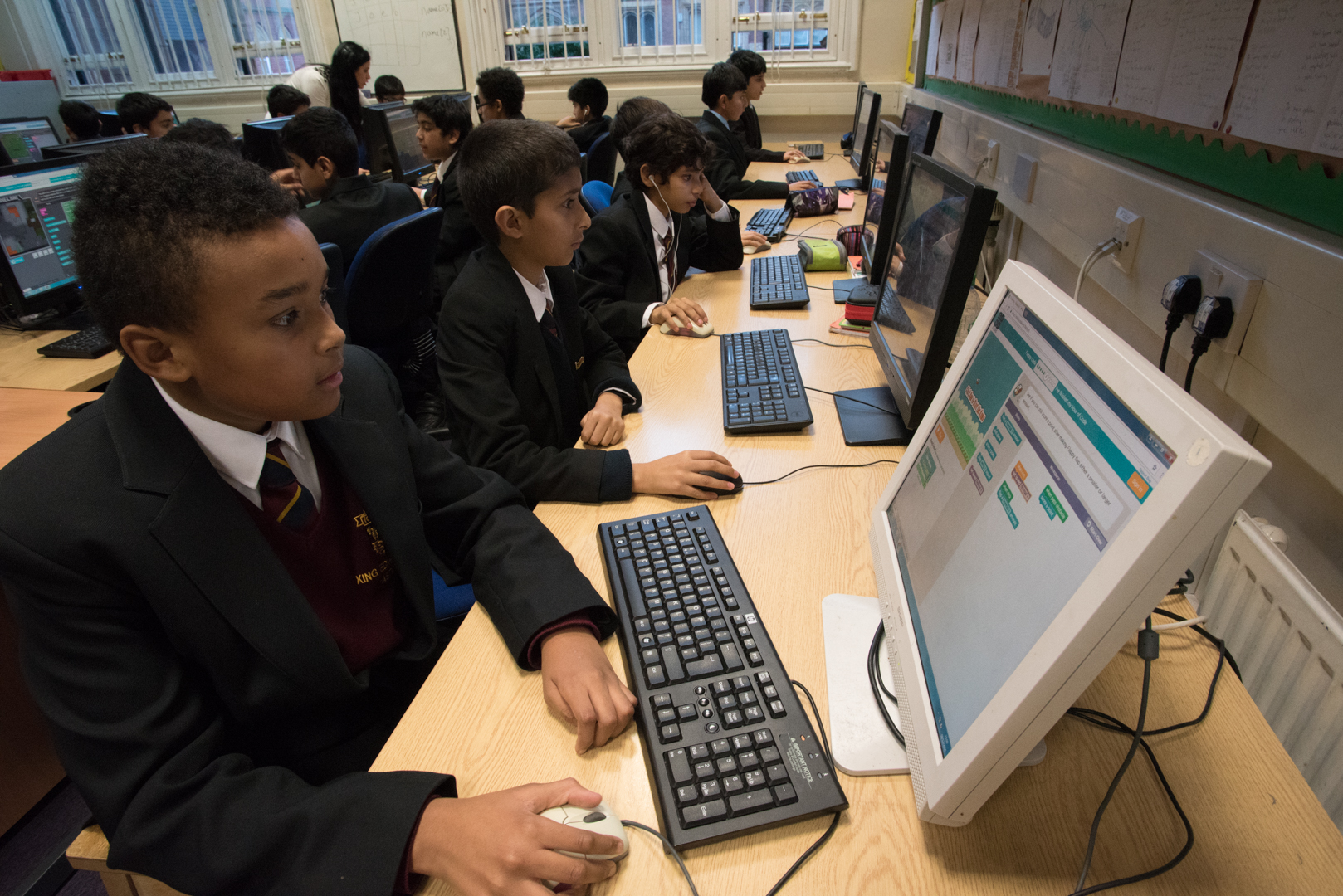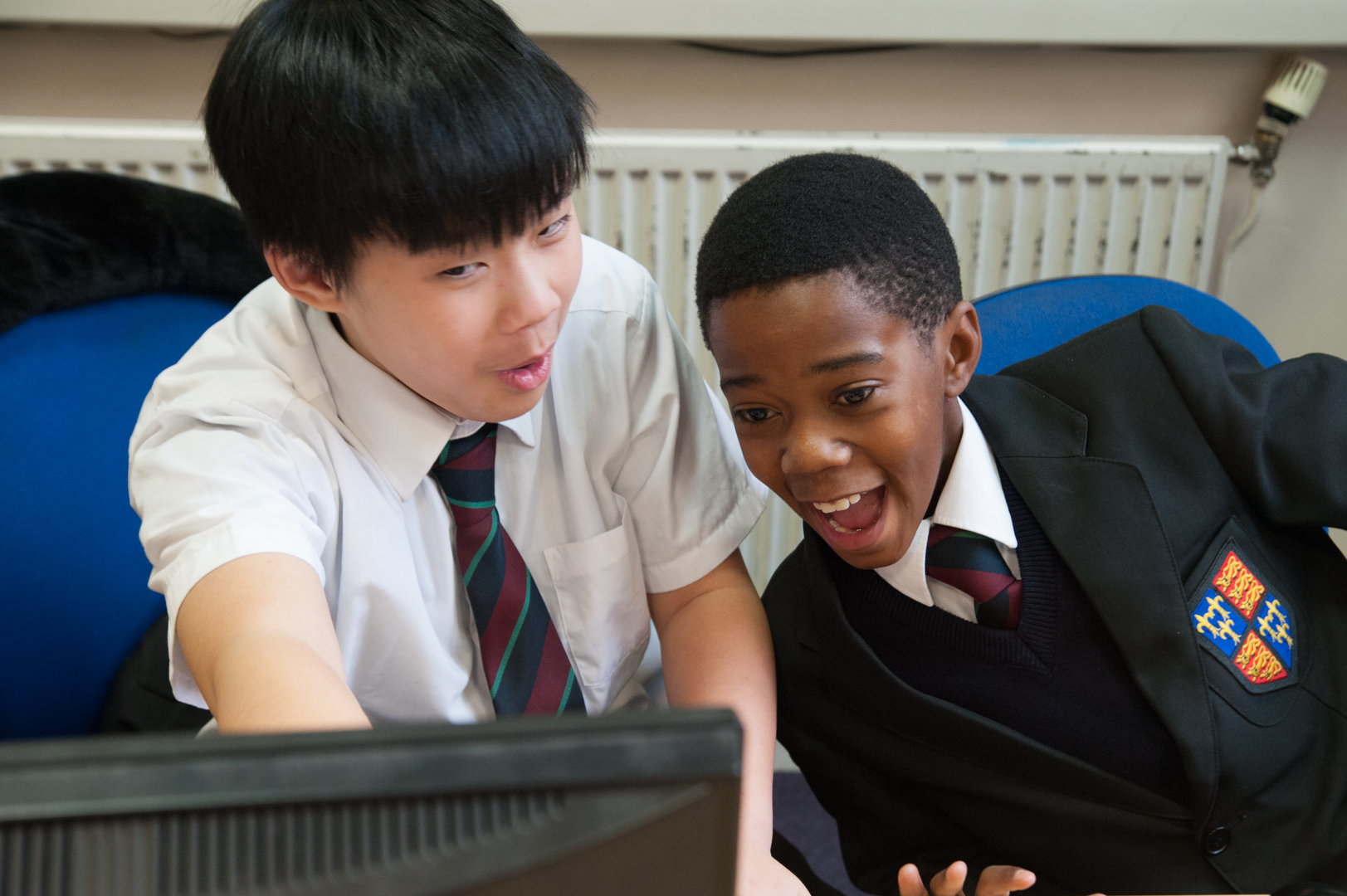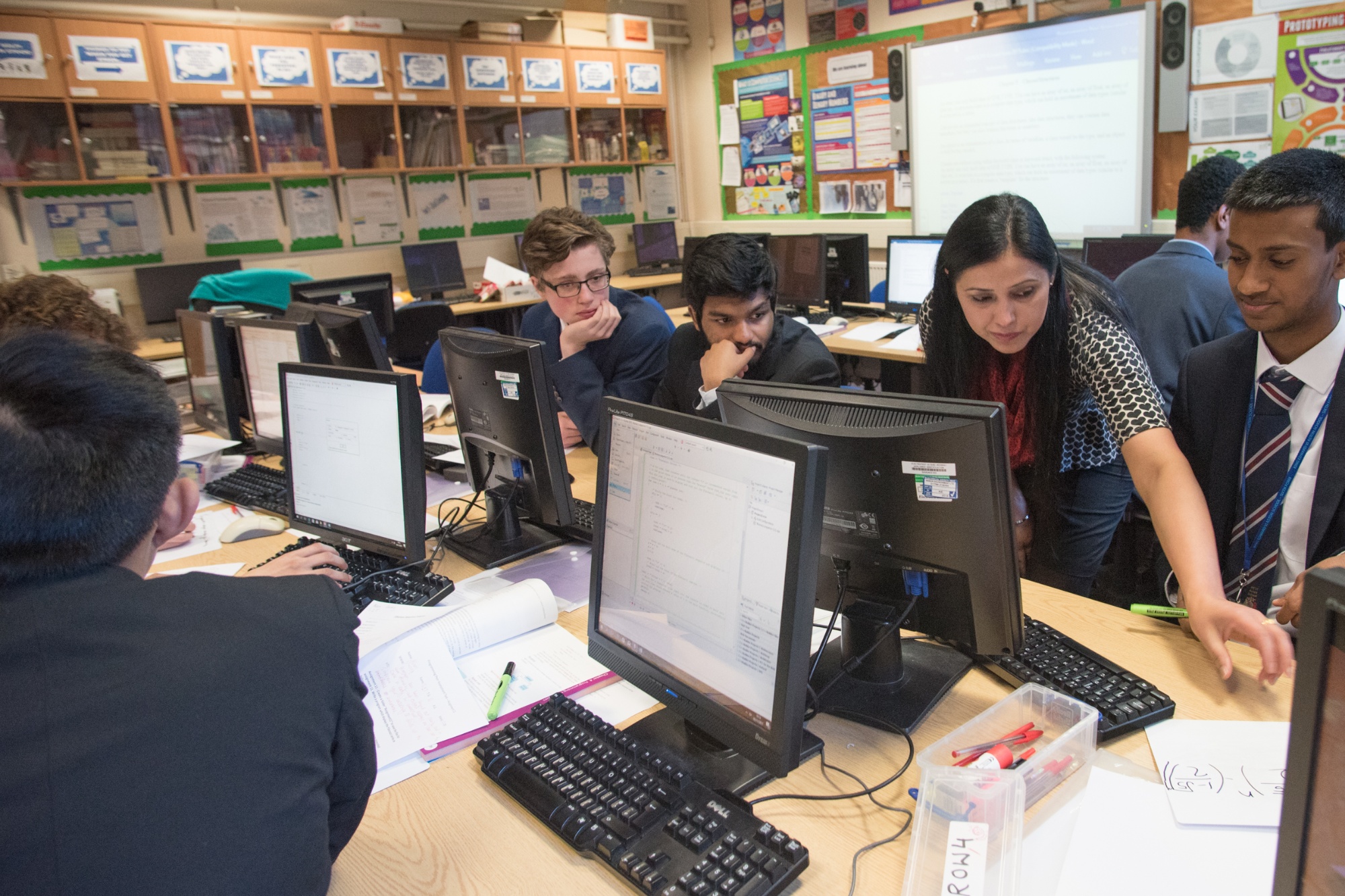Computing
Computing is the study of principles and practices that underpin an understanding and modelling of computation, and of those principles' application in the development of computer systems. At Aston, we believe that it is important that all students have an opportunity to explore the fundamental skills and concepts that underpin computer technology as a discipline. The curriculum is carefully planned with specific attention paid to the sequencing of topics studied.
The intention of the curriculum is to not only to develop digitally-literate citizens but to empower our students with computational skills so they are more proficient in conceptualising and understanding computer-based technology and so are better equipped to function in modern society.
Teaching staff:
- Mr A Russell (Subject Leader)
- Mrs K Lally (Assistant Headteacher)
- Mr M Amin
Support staff:
- Mr M Islam
- Mr B Wellavize
Trips and visits:
- Year 9 trip to Bletchley Park
- Year 10 visit to the National Museum of Computing
- Year 11 visit to Engine management centre, JLR, Wolverhampton (every other year)
- Year 11 and Year 12 visit to Oxford Computing event
- Year 12 and 13: various masterclasses run by Birmingham and Aston universities
Year 7
| Curriculum plan : | Please click here to access the Year 7 Curriculum plan |
|---|---|
| How parents can support their son’s learning: |
Encouraging your son to:
|
| Able and inspired opportunities: |
Developing programming skills through: |
| Useful websites: |
Touch typing: https://www.typingclub.com/ Office 365 MS Word: https://edu.gcfglobal.org/en/word2016/ Office 365 MS Excel: https://www.techonthenet.com/excel/index.php Office 365 Presentations: https://edu.gcfglobal.org/en/powerpoint2016/ |
Year 8
| Summary of curriculum: | Three modules are taught, based on one lesson every two weeks, with an emphasis on developing the student's proficiency in Office 365. |
|---|---|
| Main topics: |
Module 1: word processing Module 2: spreadsheets Module 3: presenting |
| Assessment throughout the year: | Self- and peer-assessments take place throughout the modules |
| How parents can support their son’s learning: |
Encouraging your son to:
|
| Able and inspired opportunities: |
Developing programming skills through: |
| Useful websites: |
Touch yyping: https://www.typingclub.com/ Office 365 MS Word: https://edu.gcfglobal.org/en/word2016/ Office 365 MS Excel: https://www.techonthenet.com/excel/index.php Office 365 Presentations: https://edu.gcfglobal.org/en/powerpoint2016/ |
Year 9
| Summary of curriculum: | In Year 9, students learn three units: data representation, networks and communications and and introduction to Python Programming. |
|---|---|
| Main topics: |
9.1 Data representation
9.2 Networks and Communications
9.3 Programming with Python
|
| Assessment throughout the year: |
Half-termly, and common assessment tasks which will take place once per half term. |
| How parents can support their son’s learning: |
By encouraging and ensuring that your son:
|
| Able and inspired opportunities: |
|
| Useful websites: |
Year 10
| Summary of curriculum: |
The course follows the OCR GCSE Computer Science specification which gives students a real, in-depth understanding of how computer technology works, engages learners, get them thinking about real world applications, being an excellent preparation for higher study and employment in computer science. The GCSE qualification consists of three components:
Link to Computer Science specification: |
|---|---|
| Main topics: |
Unit 1: computer Systems
Unit 2: computational thinking, algorithms and programming
Unit 3: programming project
|
| Assessment throughout the year: |
|
| How parents can support their son’s learning: |
By encouraging and ensuring that your son:
|
| Able and inspired opportunities: |
|
| Useful websites: |
|
Year 11
| Summary of curriculum: |
The course continues to follow the OCR GCSE Computer Science specification which gives students a real, in-depth understanding of how computer technology works, engages learners, get them thinking about real world applications, being an excellent preparation for higher study and employment in computer science. The GCSE qualification consists of three components:
Link to Computer Science Specification: |
|---|---|
| Main topics: | |
| Assessment throughout the year: |
Internal Assessment
External Assessment
|
| How parents can support their son’s learning: |
By encouraging and ensuring that your son:
|
| Able and inspired opportunities: |
|
| Useful websites: |
|
Year 12
| Summary of curriculum: |
The A Level course follows the new OCR linear Computer Science specification which encourages students to develop a range of skills and knowledge of computing as a basis for progression to further learning and/or employment in computing-related fields. The A Level course consists of three components:
The specification can be found at: |
|---|---|
| Main topics: |
Component 1: computer systems
Component 2: algorithms and programming
Component 3: programming
|
| Assessment throughout the year: |
|
| How parents can support their son’s learning: |
By encouraging and ensuring that your son:
|
| Able and inspired opportunities: |
|
| Useful websites: |
|
Year 13
| Summary of curriculum: |
The A Level course follows the new OCR linear Computer Science specification which encourages students to develop a range of skills and knowledge of computing as a basis for progression to further learning and/or employment in computing-related fields. The A Level course consists of three components:
Link to Computing Specification: |
|---|---|
| Main topics: |
Component 1: computer systems
Component 2: algorithms and programming
Programming project
|
| Assessment throughout the year: |
Internal Assessment
External Assessment
|
| How parents can support their son’s learning: |
By encouraging and ensuring that your son:
|
| Able and inspired opportunities: |
|
| Useful websites: |
|

